13 April 2021
Originally published
27 October 2020
Source
Since the coal mines in Romania’s Jiu Valley closed, many former workers and their descendants are looking for hope inside the slot machine venues that have invaded the region.
In the mining towns spread out over the Jiu Valley in southwest Romania, most people wear black. A few decades ago, when the locals were digging for coal and burning it to keep the socialist industry running, the dark clothes used to hide the soot. Now that most of the mines are closed and the air is cleaner, the dark clothes are just a reminder of those times and a part of the gloomy surroundings. However, not all is black. The bright colours and dazzling lights of the gambling venues, in business all over the valley, contrast sharply with the grey communist blocks above them and the abandoned industrial buildings nearby. They seem to offer the promise of a brighter future. The gambling industry has flourished here over the last few decades, just as it has in most poor areas of Romania that went through economic and social turmoil. A former miner says that in Jiu Valley – where nostalgia for the days of coal mining stills hang heavy – the slot machines have existed “as a way of life” since the early 1990s.
Andrei, the son of a former miner, is one of those who has fallen prey to the lure of the machines. “I won’t play anymore, fuck the machines!” he tells himself. But Andrei (his name has been changed on request) knows enough about himself to realise that it doesn’t work like that. After a while – maybe a month, maybe six – the frenzy will seize him and he’ll start playing again. Lost in the lights and the sounds, he won’t hear anyone around him. Almost two months before, at the bar where we met, Andrei had gambled away 8,000 lei (1,650 euros) – worth about two months of work – in an hour. He only plays when someone lies to him, he says; it makes him angry and he can’t control his emotions. That day a co-worker had lied to him. They met in the bar later and that had set him off. Andrei got up from the table and started playing the machines. “I don’t like being lied to.” Andrei is 31 years old and lives in Petrila, a town in the Jiu Valley. He first began playing the slot machines in a lottery agency when he was 12. It was close to school and he went with other boys after classes. The lady at the counter never told them they could not play. “And you know what it’s like, luck strikes you at first.” Andrei remembers that the first time he played he won 30 lei (6 euros).
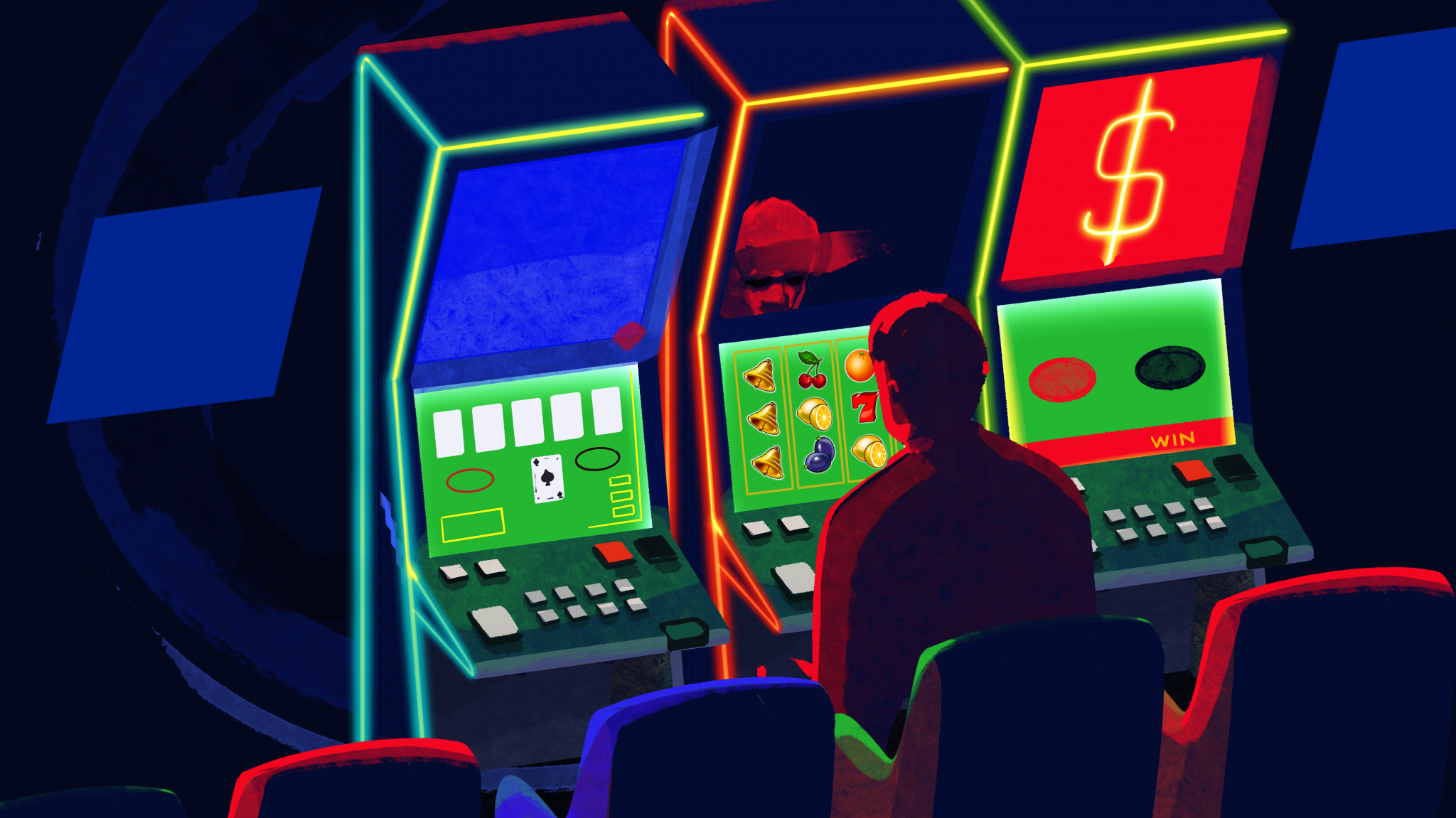
Illustration: © Mircea Drăgoi
At the age of 16, he got a job installing apartment doors. At the end of each working day, he had about 100 lei (20 euros) to spend. He didn’t even bother going home to change his clothes, but went directly to the machines and put in about 80% of his money; with the rest he bought two beers and a pack of cigarettes. For one or two days, Andrei would win and double or triple his money. But during the third day he would lose it all in half an hour – and that was it. I asked him if he had ever considered looking for help. He was silent for a moment, a little surprised. He doesn’t have a problem with gambling, he told me, because he doesn’t play every night, like others do; and he doesn’t sell things around the house to play, like others do.
What drives people like Andrei to continue playing the slot machines and where do they go when they lose everything? What resources, if any, has the community to help them get back on their feet? And with the pandemic coming and shutting down what’s left of the jobs in the valley, a new question arises: what will happen to these people whose lives revolve around gambling and the slot machines?
From hero to zero
During the communist era, miners were portrayed as heroes who kept the fires of industry burning. Statues, mosaics and bas-reliefs depicted them with huge arms and a determined glance, as mythical creatures ready to move mountains. The state paid them good salaries for their hard, underground work, as well as provide holidays and treatments in mountain resorts. People came from all over Romania to thicken the ranks of the working people in the Jiu Valley and provide coal for the country. Capitalism brought them a different kind of reward. During the first months of democracy, lots of pubs popped up in the Jiu Valley. A local artist, Ion Barbu, made a census of the places that suddenly appeared on the main street that cuts through the centre of Petrila, one of mining towns in Jiu Valley. He came up with 42. “Then, we still lived the illusion that we are rich,” said Ina Berar, who is from Petrila and works as a psychologist in Petrosani.
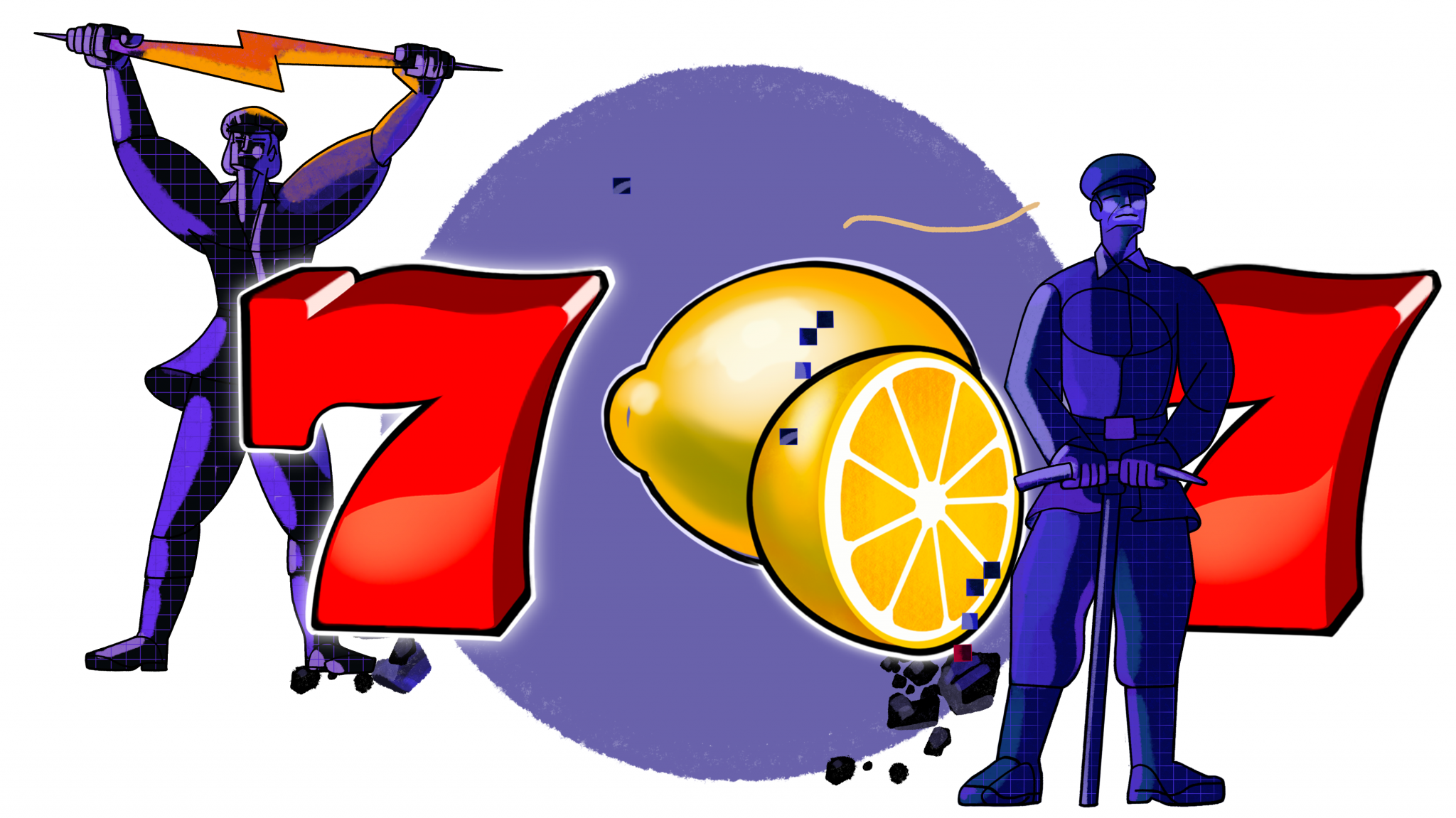
Illustration: © Mircea Drăgoi
The Jiu Valley was the perfect place for the young businessman Sorin Constantinescu to test out the four slot machines that he had brought over from Yugoslavia after working there as a day labourer in construction. Back then, there was no law regulating gambling in Romania, so device owners did not have to pay for licenses or permits. There was just the man, his slot machines and people’s huge appetite for anything new and shiny.
Constantinescu was looking for a place in the Jiu Valley and it didn’t take him long to find a bar willing to accommodate the machines. “There were no computers, so the bar owner took a torn sheet of paper from a children’s notebook. We completed the contract, we sat down, we drank a beer, we talked. The place was full of miners. While we were there for about three hours, the cost of my four devices was covered, I got my money out of them.” The slot machines quickly integrated into the local entertainment landscape. And with the money he made in the Jiu Valley, Sorin Constantinescu kept buying more slot machines, spreading his business all over the country. He made a lot of money, ran casinos and became one of the most famous people in the gambling industry.
The Jiu Valley, on the other hand, did not fare so well. First, there was the so-called “Mineriades”, which were government retaliations against the opposition protests in Bucharest in the early 1990s using workers from the Jiu Valley as an armed militia. The images of miners coming to Bucharest on trains, with their uniforms and their helmets, and beating people up quickly replaced the idealised representations of miners from communism. Over the next few years, the new political powers rewarded the miners with good wages and protected them from the worst effects of economic collapse, even though coal production had fallen by almost 50% from the communist period.
But in 1997, when a new government proved more willing to take on restructuring and layoffs, the Jiu Valley experienced a massive economic shock: between 1997 and 1999, almost 20,000 miners lost their jobs, out of a total of 45,000. To avoid a social catastrophe, the authorities offered the miners between 12 and 20 compensatory salaries, depending on their seniority, and many left voluntarily. The compensation payments seemed like “free money”, and many did not know what to do with the large sums, remembers the mayor of Vulcan, Gheorghe Ile. Some of the money, inevitably, flowed into the slot machines, psychologist Ina Berar remembers: “There were [compensatory salaries] that have disappeared like this.”
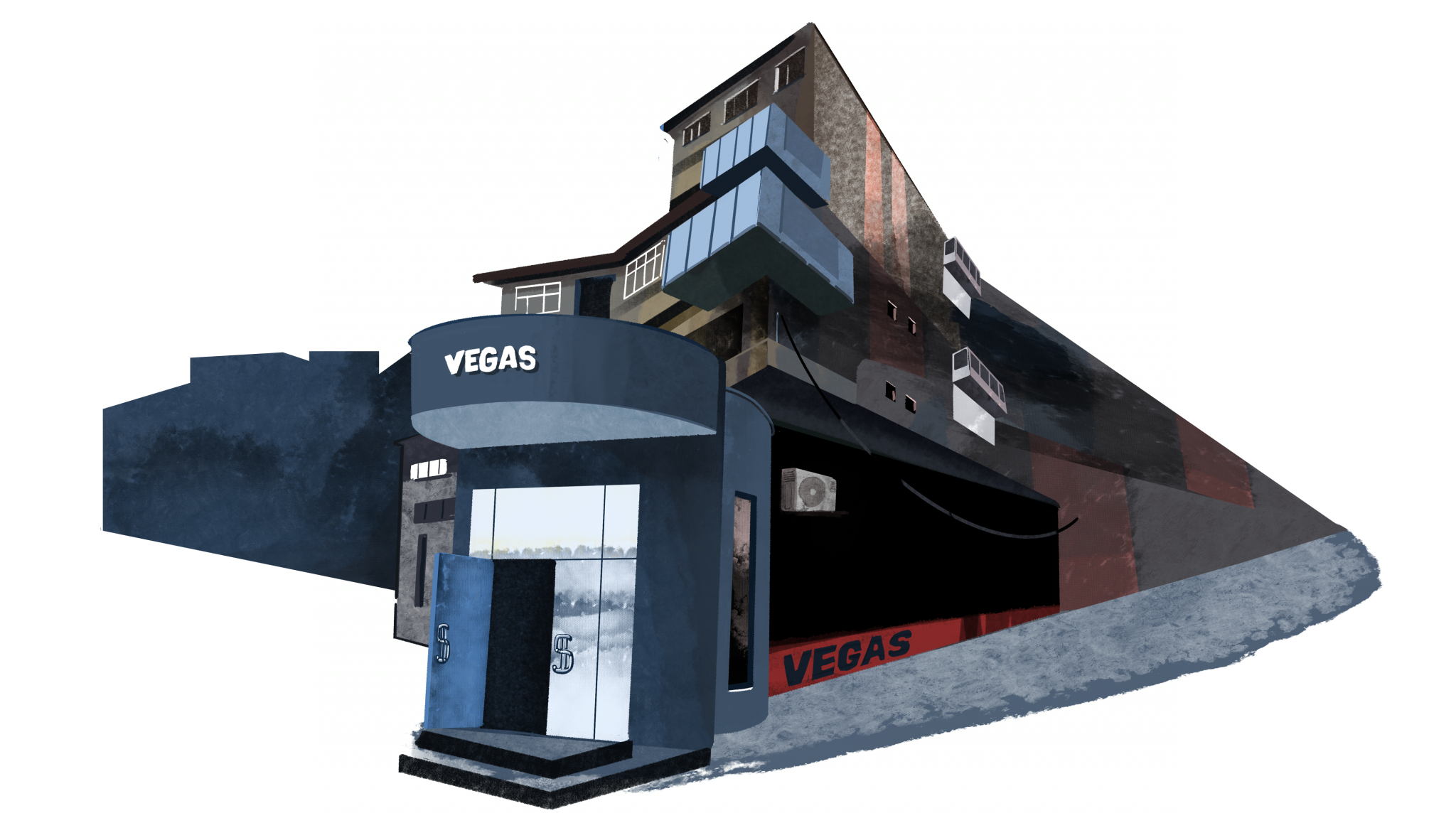
Illustration: © Mircea Drăgoi
Then the mines began closing. Of the 14 that produced coal in the Jiu Valley in 1990, only four operate today, but these are also under liquidation. According to a draft Government Decision put up for public debate a few months ago, the Lonea mine, located in Petrila, should close by the end of this year. The one in Lupeni – another town in the Jiu Valley – will close by the middle of 2021. The miners’ traditional greeting of “Good luck”, which used to be written at the entry to almost every mine, now fits just as well over the entrances to the new gambling venues.
No renewal, just nostalgia
The nostalgia of mining infects the Jiu Valley; this is understandable given the locals lived from mining for the last 200 years without any backup plan. In the most important towns in the area – Petrosani, Vulcan, Lupeni, Petrila, Uricani and Aninoasa – there are now around 130,000 people living there. Since 1992 – when the mining industry was still strong – these localities have lost around 20% of their population, with many of the former miners and their families leaving to live and work in other regions of Romania or elsewhere in Europe. The hopes of many of those who stayed behind have become as dull as the grey of the post-industrial landscape.
Over the coming years, the Jiu Valley and Oltenia province are in line to receive 757 million euros in non-reimbursable European funds, to help the regions’ economic recovery after the last mines close. However, that money is conditioned on the existence of development projects in the area, and the experience of the last 30 years shows that such projects are difficult to develop and put into practice.
Alex Kelemen is a program coordinator at Caritas Petroșani, an NGO that also offers counselling and educational guidance for young people in the Jiu Valley. Kelemen estimates it will take about two generations for people to get past this moment and begin to shape their futures in other directions. The towns in the Jiu Valley line up along the hollow formed by water between four mountain massifs, and their imposing contours form the backdrop for the decaying towers and equipment of the mines or their remains. The local mayors always mention tourism as an opportunity for the area, but they do so without much conviction.
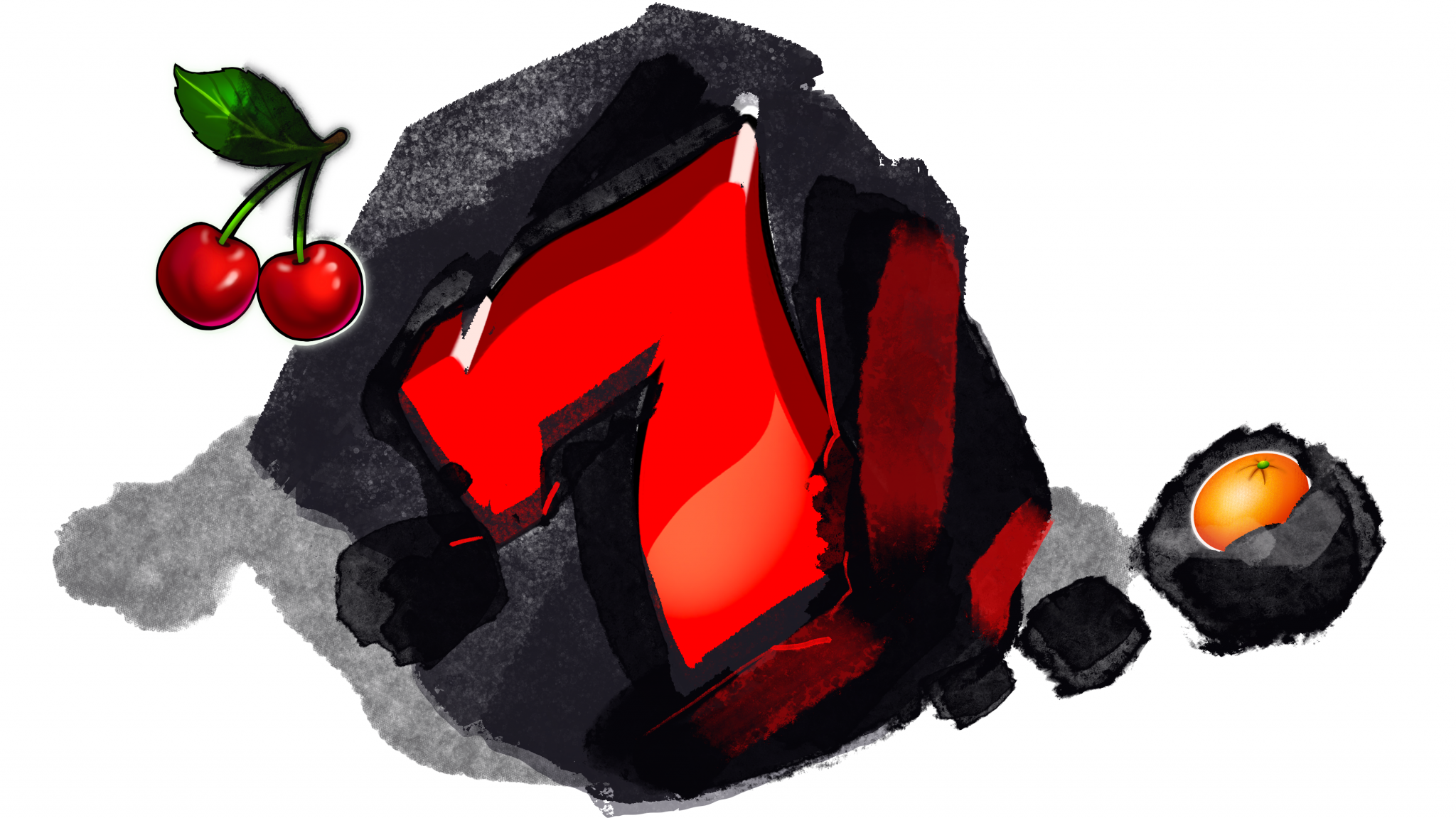
Illustration: © Mircea Drăgoi
The Petrila mine, which closed in 2015 after 156 years in operation, has left behind buildings and old equipment deteriorating on the outskirts of the city. Ion Barbu, the local artist, and a group he gathered around him tried to save the industrial heritage of the mine through cultural projects, but their actions were dragged down by the stifling bureaucracy, indifference and theft. “I was thinking about Petrila’s fate,” Barbu told Reporting Democracy. “It’s a place where nothing happens, and every day looks like another. You don’t have a cinema, you don’t have a theatre. The authorities turned the stadium into a park that is now full of weeds. Basically, the whole leisure industry does not exist. So, what to do?”
The whole life of Petrila seems to be focused on the main road. There are two rows of brick blocks with second-hand shops, pharmacies, pastry shops, many bars and, of course, slot machine venues at the ground level. On a wall of one block someone has written: “Money talks and maintains petty dreams”. Out of 24,000 inhabitants, according to the statistics, about a third are working abroad. Many have retired at a young age, if they had the chance, and have good pensions, lots of time and little to do. As in many such places, young people leave as soon as they finish high school or earlier.
I spoke with Darius Negoi, an 18-year-old from Petrila, a few days before he passed his final exams. He was thinking of studying psychology in Timisoara. “It’s better to go somewhere where I can make a future for myself than to work here for a minimum salary,” he said. There are still a few more mines, but it won’t be long until they are all gone. “After that, I think the Jiu Valley will die,” he sighed. A poor community like this is a godsend for the gambling industry, said Kelemen. “I don’t think the companies calculate how poor or rich a community is, but how easily people will give up some money for the hope of very fast earnings. So, they create social spaces where people don’t have opportunities.”
Rise of the machines
In 2019, there were 77,913 slot machines in Romania. Their number has constantly increased since 2004, when there were 16,021 units. The institution that authorises, controls and monitors the entire industry is the National Gambling Office (ONJN), or Rombet, which is overseen by the government. There are 1,726 slot machines in Hunedoara County, where the Jiu Valley is located. Data from Petrila’s townhall shows that here alone there are now 27 venues with slot machines – bars or special rooms. At an average of five devices in a room (a calculation based on nationally available data), we can estimate that in Petrila there is one device for every 177 inhabitants, regardless of age. By comparison, on a national level there is one slot machine for every 248 inhabitants.
The Romanian state leaves the problem of gambling addiction in the hands of the industry, as shown by an investigation published by BIRN in 2016. A law in 2015 forces companies to support a “public interest foundation”, “whose main objective will be to comply with socially responsible gambling measures”.
An association called “Joc Responsabil” (The Responsible Gambling Association), which has been operating in this form since 2018, is supported by the three major associations in the industry and offers, among other things, a self-test service for players, a free helpline, a chat service available non-stop, the possibility to participate in five free therapy sessions in one of the centres in Bucharest, Iași or Cluj, or the possibility to exclude yourself from gambling venues, a solution that involves the player asking operators to ban them. It is not known how many people have taken that option, because the companies are not required to release any numbers. To date, the association has not published any report on the number of players accessing its services nor released any study using the collected data.
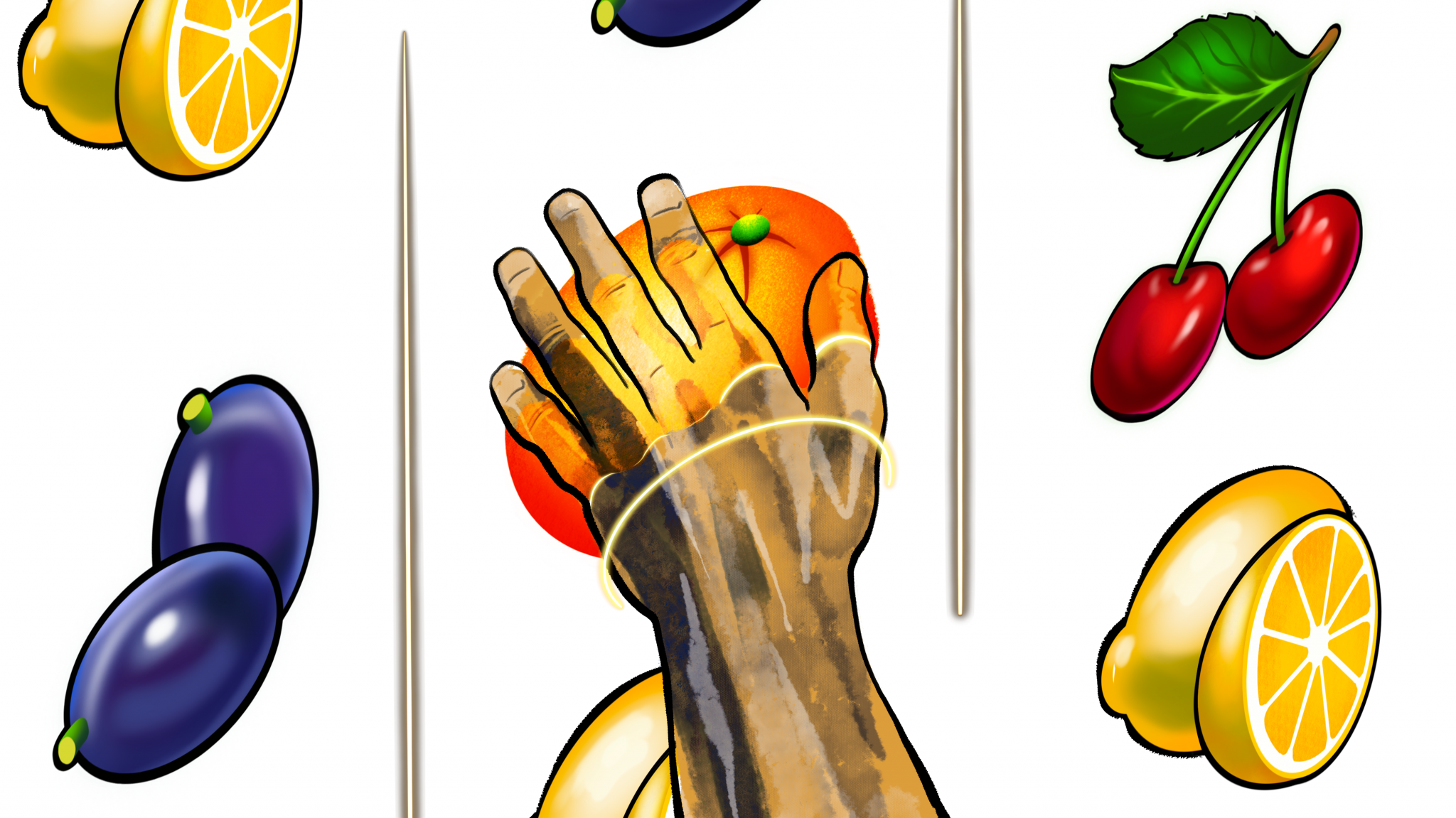
Illustration: © Mircea Drăgoi
The Romanian state does little for addicts. The cost of treatment for various addictions can be covered, but only within three consultations a day for a psychologist, in a clinic that has a contract with the National Health Insurance House, which limits the number of people who can be treated for free. The National Centre for Mental Health and Anti-Drug Control, which exists as part of the Ministry of Health, does not currently have any program or project that refers to gambling addiction.
Not only do the authorities not provide consistent help for gambling addicts, but they choose to punish them. Several town halls in the Jiu Valley started last year to cut social benefits to those who, when asking for help, fail to mention that they have generated an income from gambling in the previous year. By “income”, the local tax office means any small amount registered by the games room as a win: for example, if someone wins 10 euros, they will be registered as a winner, even if they lose 50 euros hours later. In the town of Vulcan alone, 26 families were left without social benefits received in 2017 and 2018 because they had received income from gambling and failed to declare it. The townhall of Petrosani discovered another 27 illegal beneficiaries.
When relations realise a family member has a problem with gambling, they have nowhere to turn. There are no dedicated services, not even a support group for any kind of addiction in the Jiu Valley, laments Alex Kelemen of Caritas Petrosani. In the absence of any other help, families turn to the Orthodox Church to get rid of the “passion of games”. Three priests from the Jiu Valley told Reporting Democracy that cases where women give them prayer lists for their husbands or sons to give up gambling have multiplied. Iulian Selaje, a priest in Petrosani, said he is trying to talk to those affected and believes they need “a very serious prayer program”. There are 40 Orthodox churches in the Jiu Valley, but no clinic to treat addiction.
Facing the future
I met Andrei, the 31-year-old from Petrila, during the summer on the terrace of the bar where we had first spoken. Under the big umbrellas, between crates of beer, with greenery around and soft music on the radio, the place seemed as safe as inside. The bar inside is closed because of the pandemic, but the slot machines remain open. So you can sit inside to gamble, but you can’t drink a beer there – that’s the new reality of the slot machine venues.
As the number of COVID-19 cases started growing in recent months, the Romanian authorities have adopted restrictions depending on the incidence in certain areas. For instance, where there were more than 1.5 cases for 1,000 inhabitants, the interior spaces of restaurants, cafes and gambling venues were closed. On October 13, as this threshold was reached in Petrila and another 36 localities in the region, the slot machines venues were temporarily closed. Instead, the number of online players started growing all over Romania. In the first months of the pandemic, the gambling platforms reported a rise of 15-20 per cent more users, said Sorin Constantinescu, CEO of a consulting company in the industry.
Andrei, too, has an online account with a gambling website and during the past few months he kept receiving advertisements by email, with all kind of promotions, but he was not tempted to put his money in. He hasn’t played since the slot machine venues were reopened, but he knows that at some point in the future someone will upset him and he’ll find himself in front of the slot machines. And lost in the noise and the lights, he won’t hear or see anything else.
This report was made possible with the support of a grant from Reporters in the Field, funded by the Robert Bosch Foundation.
First published on 27 October 2020 on Reportingdemocracy.org, a journalistic platform run by the Balkan Investigative Reporting Network.
This text is protected by copyright: © Vlad Odobescu, Federico Thoman and Anna Bigano / Reporting Democracy. If you are interested in republication, please contact the editorial team.
Copyright information on pictures and graphics are noted directly at the illustrations. Cover picture: Illustration: © Mircea Drăgoi.